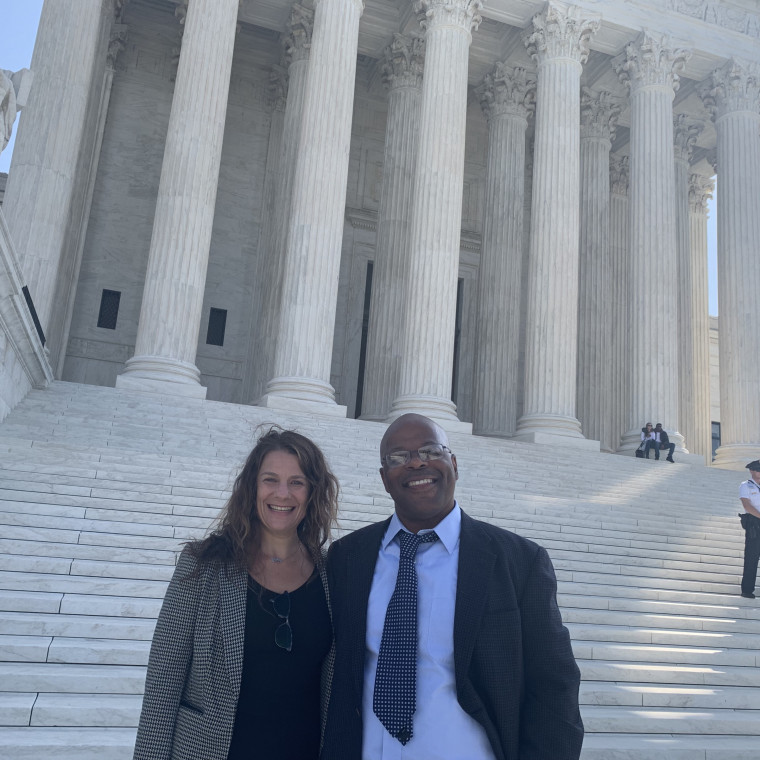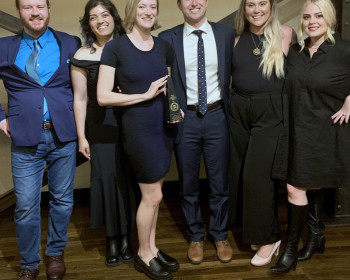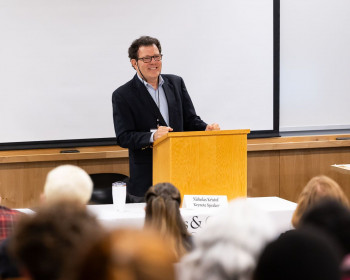Incoming Student Profile: Jailhouse Lawyer Who Brought Case to Supreme Court
Open gallery

Incoming 2020 law student Calvin Duncan brings some 23 years of experience in the law from his work as a jailhouse lawyer. While he was an inmate at the Louisiana State Penitentiary, he taught himself the law and helped to free several inmates. Lawyers sought his advice on issues, and he became very good at spotting a promising legal issue among his fellow inmates.
At age 19, Calvin Duncan was arrested and later wrongfully convicted of murder. After serving over 28 ½ years in the Angola, Louisiana prison for a crime he did not commit, he was released in 2011 with the help of the Innocence Project New Orleans. While incarcerated, Mr. Duncan learned the law and offered legal services to hundreds of fellow prisoners, including those on death row. Since his release, he has been awarded a Soros Justice Fellowship to vindicate the rights of incarcerated people and is the program director of The Light of Justice Program, which helps incarcerated people gain access to the courts.
After his release, Duncan worked full-time while earning his bachelor’s degree from Tulane University, where he graduated in 2018. He was constantly working towards his dream of attending law school in Oregon.
One legal issue that Duncan could not let go of, even after leaving prison, was how a Louisiana law allowing non-unanimous jury convictions could be constitutional. He worked on over a dozen cases attempting to persuade the Supreme Court to address the issue of non-unanimous juries, before finally being successful in the 23rd petition, Ramos v. Louisiana. In Ramos, decided on April 20, 2020, the Supreme Court struck down non-unanimous juries as unconstitutional.
Through his work with non unanimous juries, Duncan got to know Professor Aliza Kaplan and the two have become friends. (Kaplan and the Criminal Justice Reform Clinic had researched the racist history of the non unanimous jury law and advocated for the law to change in Oregon.) “I am thrilled that Calvin chose Lewis & Clark as his law school,” Professor Kaplan stated. “As his friend and colleague, I am so excited that I will be able to watch him go through law school and fulfill a dream of his to become a licensed lawyer.”
Oregon has always been a special place for Duncan. He was arrested for the murder he was wrongfully convicted of while working on a JobsCorp project in Mt. Hood. “Oregon was the place where my life ended and now I want it to begin all over again there,” Duncan explained.
This won’t be the first time Duncan has been to Lewis & Clark since his release. In October 2018, the undergraduate campus welcomed Duncan as a guest speaker to talk about his remarkable journey, the challenges that incarcerated people face when trying to litigate from inside prison, and his ongoing efforts to create systemic reform in the indigent defense system.
“I don’t know exactly what I want to do as a lawyer, I have three years to figure that out,” Duncan stated. “However, I know I want to continue to help those who are unable to help themselves.”
“Calvin will bring so much to our incoming class and our law school, his perspective, intelligence, and persistence in all that he puts his mind to will be a gift for all of us,” stated Professor Kaplan. “I look forward to continuing to work with him on important criminal justice reform issues here in Oregon.”
Law Communications is located in room 304 of Legal Research Center (LRC) on the law Campus.
MSC: 51
email jasbury@lclark.edu
voice 503-768-6605
Cell: 626-676-7923
Assistant Dean,
Communications and External Relations, Law School
Judy Asbury
Law Communications
Lewis & Clark Law School
10101 S. Terwilliger Boulevard MSC 51
Portland OR 97219

